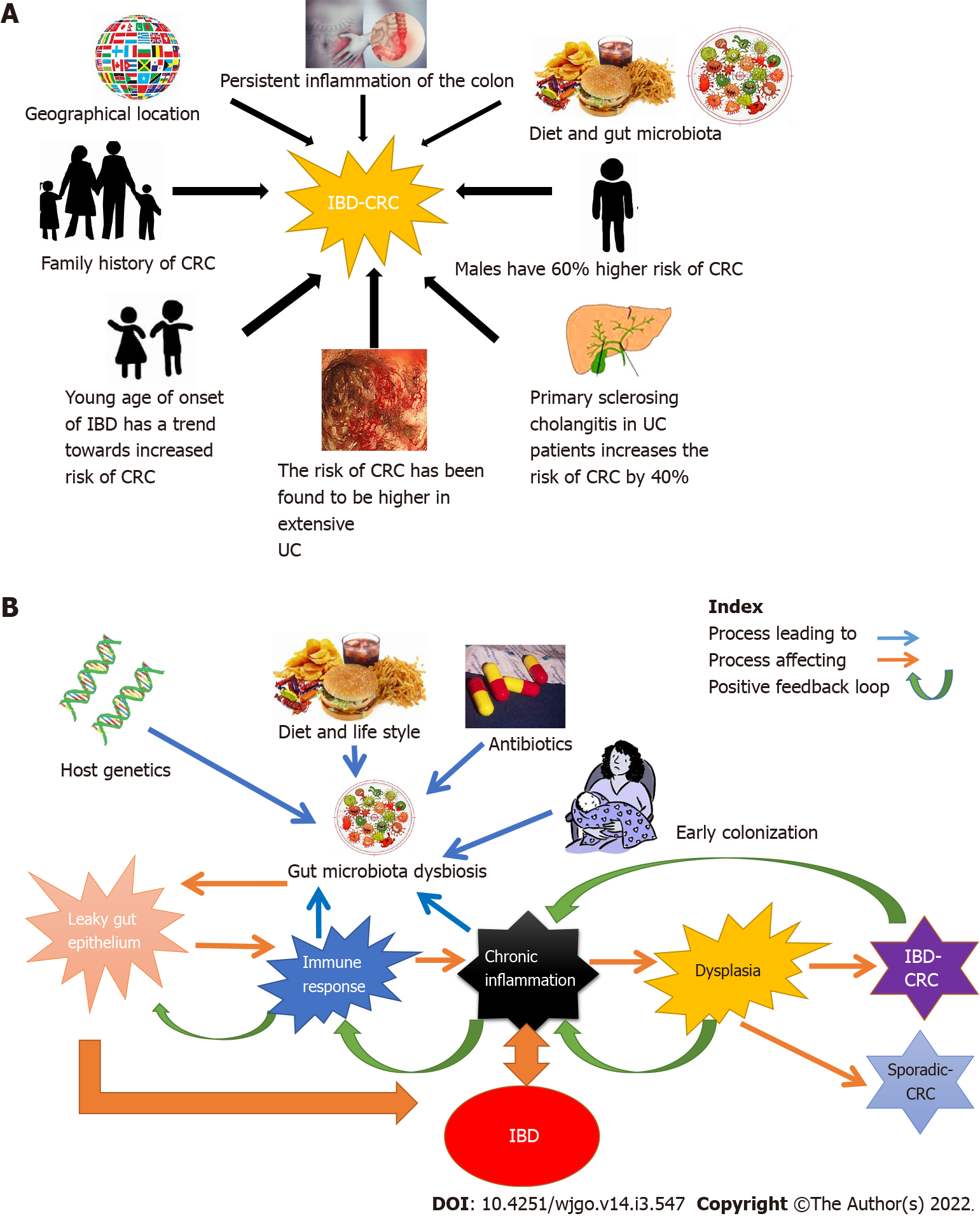Copyright
©The Author(s) 2022.
World J Gastrointest Oncol. Mar 15, 2022; 14(3): 547-567
Published online Mar 15, 2022. doi: 10.4251/wjgo.v14.i3.547
Published online Mar 15, 2022. doi: 10.4251/wjgo.v14.i3.547
Figure 1 Risk factors leading to the development of inflammatory bowel disease-related colorectal cancer and the role of gut microbiota in inflammatory bowel disease-related colorectal cancer.
A: Risk factors leading to the development of inflammatory bowel disease-related colorectal cancer (IBD-CRC). Risk factors are classified as familial and genetic. The factors are depicted in clockwise order: Genetic factors include a person’s genetic makeup, family history of IBD and rarely monogenic causes of IBD. Younger age at diagnosis, male gender and durations of the disease has been identified as strong risk factors for IBD-CRC in longitudinal studies. The geographical location of the person, their diet, lifestyle, underlying diseases like extensive or left-sided ulcerative colitis, Primary sclerosing cholangitis, and other conditions causing persistent colon inflammation, are also known to increase the risk of development of IBD-CRC; B: Role of gut microbiota in IBD-CRC. Multiple factors such as diet, antibiotic use, and mode of birth and host genetic makeup influence/modulate the gut microbiota. This can lead to microbial dysbiosis mediated intestinal tissue damage causing intestinal barrier leak and mobilization of gut microbiota into host mucosa. The gut microbiota mediated break in the mucosal barrier, in turn, triggers an aggravated immune response leading to chronic inflammation. IBD, driven by an aberrant autoimmune response also leads to inflammation of the gut. This chronic inflammatory state leads to tissue damage causing dysplasia that can progress to cancer over time. CRC: Colorectal cancer; IBD: Inflammatory bowel disease; UC: Ulcerative colitis.
- Citation: Majumder S, Shivaji UN, Kasturi R, Sigamani A, Ghosh S, Iacucci M. Inflammatory bowel disease-related colorectal cancer: Past, present and future perspectives. World J Gastrointest Oncol 2022; 14(3): 547-567
- URL: https://www.wjgnet.com/1948-5204/full/v14/i3/547.htm
- DOI: https://dx.doi.org/10.4251/wjgo.v14.i3.547









